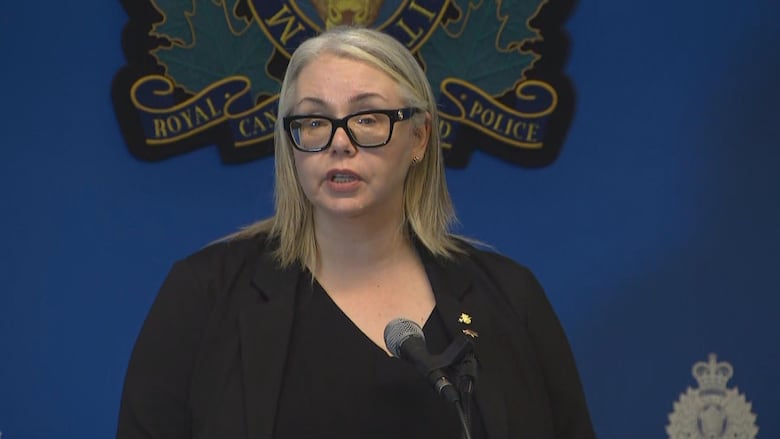B.C. creates new 12-member RCMP unit to combat human trafficking
RCMP say there were 43 incidents of human trafficking reported in 2023, but number is expected to rise

The B.C. government has announced it will fund a new police unit to investigate human trafficking crimes and expand support for victims.
The 12-member counter-human-trafficking unit will include two teams, Minister of Public Safety and Solicitor General Nina Krieger said at a news conference on Wednesday.
The education team will train officers throughout B.C. on how to identify and respond to human trafficking incidents, and how to differentiate between what is and isn't human trafficking, Krieger said.
She said people who engage in sex work by their own choice are not the targets of the province's efforts.
The investigative team will lead multi-jurisdictional operations throughout B.C.
Chief Supt. Elija Rain, officer in charge of the B.C. RCMP major crime section, said human trafficking is difficult to detect and investigate.
"The creation of the new B.C. RCMP counter-human-trafficking unit strengthens our ability to investigate these crimes, target traffickers through intelligence, education and investigative means," Rain said at the news conference.
There were 43 incidents of human trafficking reported to police in B.C. in 2023, but Rain said human trafficking is "hidden in plain sight" and added statistics are "grossly underreported."
"We anticipate that, within a year, we're going to see a significant rise in stats," Rain said, and added the crimes hit "all four corners of this province."
Krieger said this work was previously done through a counter-exploitation unit with two officers.
Funding for the new unit will come from the province's $230-million allocation to the RCMP provincial police service to hire 256 members over three years in specialized units, such as major crimes, internet child exploitation and the B.C. Highway Patrol.
Cheryl Melder, program director for family trauma and victim supports for Family Services of Greater Vancouver, said the unit is long overdue, and "very welcome."
"Some of the advantages of having a provincial response is that there will be policy and process that's in place, both for the investigative side but also for the trauma-informed responses for victim-centred care," she said.
Having a provincial mandate will ensure more people understand the issue, Melder said, and how best to identify and support survivors.
She said she hopes the new unit will engage with communities and organizations that work with survivors.
"We've seen in our model here in Vancouver that the benefits both for the criminal justice system outcome, but also for survivor safety, are highest when victim services and police are working together collaboratively," Melder said.
With files from Sohrab Sandhu and Lauren Vanderdeen